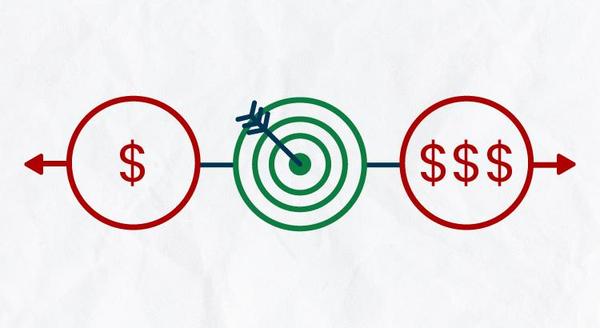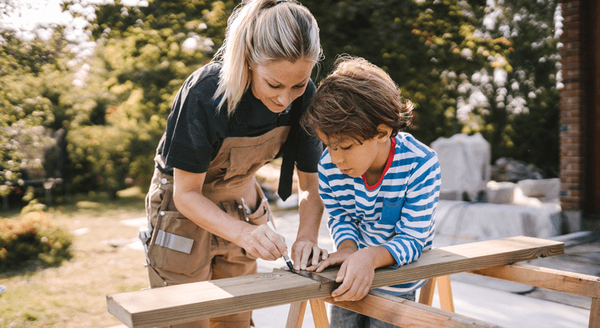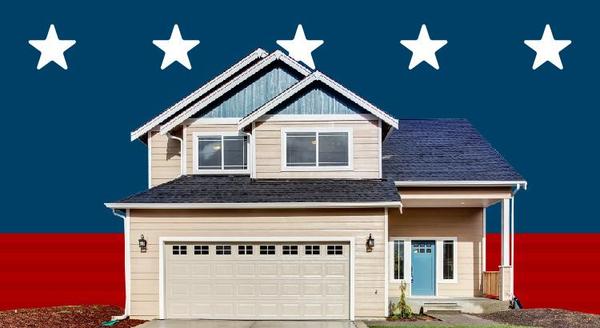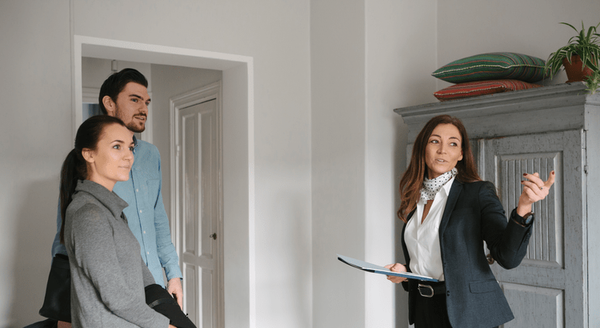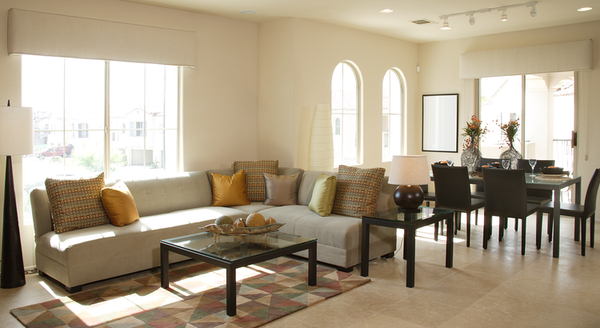
What You Need To Know About Saving for a Home in 2024
If you’re planning to buy a home, knowing what to budget for and how to save may sound intimidating – but it doesn’t have to be. One way to ease those concerns is to make sure you understand some of the costs you may encounter up front. And to do that, always turn to trusted real estate professionals. They can help you set a plan and take a strategic look at your budget and your process before you even get started.Here are just a few things experts say you should be thinking about.1. Down PaymentSaving for your down payment is likely top of mind as you set out to buy a home. But do you know how much you’ll need? While every buyer’s situation is different, there’s a common misconception that putting 20% of the purchase price down is required. An article from the Mortgage Reports explains why that’s not always the case:“The idea that you have to put 20% down on a house is a myth. . . . The right amount depends on your current savings and your home buying goals.”To understand your options, partner with trusted real estate professionals to go over the various loan types, down payment assistance programs, and what each one requires. The more you know ahead of time, the easier the process will be.2. Closing CostsMake sure you also budget for closing costs, which are a collection of fees and payments made to the various parties involved in your transaction. Bankrate explains:“Closing costs are the fees you pay when finalizing a real estate transaction, whether you’re refinancing a mortgage or buying a new home. These costs can amount to 2 to 5 percent of the mortgage so it’s important to be financially prepared for this expense.”The best way to understand what you’ll need at the closing table is to work with a trusted lender. They can provide you with answers to the questions you might have.3. Earnest Money DepositIf you want to cover all your bases, you can also consider saving for an earnest money deposit (EMD). An EMD is money you pay as a show of good faith when you make an offer on a house. According to Realtor.com, it’s usually between 1% and 2% of the total home price.This deposit works like a credit. It’s not an added expense – it’s paying a portion of your costs upfront. You’re using some of the money you’ve already saved for your purchase to show the seller you’re committed and serious about buying their house. Realtor.com describes how it works as part of your sale:“It tells the real estate seller you’re in earnest as a buyer . . . Assuming that all goes well and the buyer’s good-faith offer is accepted by the seller, the earnest money funds go toward the down payment and closing costs. In effect, earnest money is just paying more of the down payment and closing costs upfront.”Keep in mind, an EMD isn’t required, and it doesn’t guarantee your offer will be accepted. It’s important to work with a real estate advisor to understand what’s best for your situation and any specific requirements in your local area. They’ll advise you on what moves you should make so you can make the best possible decisions throughout the buying process.Bottom LineWhen buying a home, being informed about what to save for is key. Partner with a local real estate advisor so you’ll have an expert on your side to answer any questions you have along the way.

5 Secret Sources of Down Payment Money
Whether you are planning to put down a full 20 percent or pulling together the cash for a 3.5 percent down payment for an FHA loan, your down payment might be the biggest single cash expenditure you ever make. Some scrimp and save for years, while others can ready the cash with less difficulty, but no buyer in the history of home buying has ever said they have too much down payment money. Here's an insider secret: many buyers have a treasure trove of down payment resources at their disposal, hidden in plain sight. Here's a map to this hidden treasure – a handful of frequently-overlooked sources of down payment funds. 1. Your budget's biggest line items. Home buying is one of those push-meet-shove-type situations. If you're serious about coming up with your down payment funds, sit down and backtrack over your monthly budget or your last month's checking account statements. Isolate your top 10 budgetary line items and do an internal gut check on whether there is anything on this list that you can slash or eliminate. If you spend $5 a workday on a bagel and coffee at breakfast and another $15 on your takeout lunch, that's $400 per month – almost $5000 a year! – you can save by simply bringing these things from home (not to mention the health and other benefits you'll gain). And those numbers are not inflated, if you work in a big city. Nor is the $100/month cable bill, the $20 yoga class, the $2,000 vacation or the premium pricing you might paying for cell service. Redirecting the dollars you would normally spend for some of these big-ticket items back into your down payment savings account is like pressing fast forward on your home buying timeline. 2. Your stuff. When you need to save money, there are really only two levers you can pull: you can spend less, or you can make more. Selling stuff you already own and don't actually use is a relatively painless way to make more money to go toward your down payment. If you're really serious about home buying, put everything on the table. Things buyers-to-be often sell (usually online) include: RVs, cars and motorcycles designer clothes, costumes, shoes and handbags underutilized hobby-related gear (bikes, boats and snowboards) furniture and antiques electronics, books and CDs (think: TVs, computers, old smart phones, etc.) Don't underestimate the amount of cash you can bring in from the things you already own. 3. Your skills and time. One way to make more money is to sell off the stuff you have lying around the other is to get to work! Spend your off-time, your evenings and weekends leveraging your professional skills or personal hobbies to bring in some extra cash. Once you get serious about coming up with your down payment cash and decide to be creative about where to find that money, using your skills and your time creatively is a power-packed way to open the financial floodgates. Consider starting out with a simple email to your circle of acquaintances outlining your skills and what kind of work you'd like to pick up. You can also list your potential services on a site like TaskRabbit. If you are crafty you might let your new felting hobby stock the virtual shelves of your shop on Etsy. Even if you aren't "creative" think creatively about what you might do to earn a little extra cash. One acquaintance of mine has earned thousands of dollars dog sitting while she works at home. You'll be surprised by how much you can earn hawking wares on the side or with small business projects, like research, bookkeeping or office organizing projects. 4. Your Parents, Family and Friends. Many home buyers get by with a little help from their friends (and relatives). Most mortgage programs will allow for some portion of your down payment to come in the form of 'gift money,' which is exactly what it sounds like: money someone gives you to help you buy a home. The best case scenario is to have some idea of what sort of gift money you can count on as far in advance as possible, as it will impact your own savings targets and your lender's documentation requirements. If you have a parent, sibling or auntie who has mentioned their interest in giving you this sort of gift it is important to bring the subject up, express your gratitude and let them know that you're planning to buy soon. You'll want to have a detailed conversation about logistics and go over everything from timelines to tax obligations. Check in with your mortgage pro about how much of your down payment needs you can satisfy with gift money – guidelines vary widely based on how much of your own cash you have to put down and what loan programs you're applying for. Lenders almost always require that gift money be contributed along with a gift letter that states that the giver is a relative and that the money is a gift, not a loan. The lender may also require to see a bank account statement from the giver showing that the money was theirs to give – just to be sure they didn't go out and get some sort of loan that they expect you to help them repay. 5. Your Assets. Some retirement accounts allow you to borrow against or pull out funds, penalty-free, to apply them toward your down payment on a home. Obviously your specific circumstances will determine if it is advisable for you to tap into your 401K or IRA and plug that cash into a house. For some buyers, it may make sense to get your down payment up to 20% by borrowing a few thousand dollars from yourself! If getting your down payment to the 20 percent mark by borrowing from your 401K gets your mortgage interest rate down and allows you to repay that cash to your own retirement account (vs. to your mortgage lender) with interest, you and your financial advisor might agree that this move is the right move for you. Or not – this is a highly personal decision that must be made strategically, but some homebuyers should at least explore whether their retirement accounts are a sensible source of some portion of their down payment funds.

6 Signs A Home Might Be "The One"
You might have heard that saying about the number of fish there are in the sea – the sea of prospective dates and mates. The same goes for homes on the market. Even when the market heats up as it's doing now, it's not uncommon for a buyer to visit 10, 20 or even more homes before finding the property they want to make their home. These numbers can be daunting, but even the most particular buyers, even buyers who are frustrated by how many homes don't seem like the right fit, can take heart in this one truth of dating that also applies to house hunting: You only need to find ONE. So the next question is this: how do you know which fish is the one you should take home – I mean, make your home? To help, here are six signs that a given home you're viewing might in fact be "The One": 1. You instantly feel possessive about the property. When you walk into 'The One' no matter how long you've been house hunting, you'll get an involuntary surge of energy to do whatever it takes to make that home yours. If you're at an Open House and other buyers are viewing the place, you'll start to feel competitive. If you're at a private viewing, you'll start to talk numbers and offer logistics. For that matter, some buyers start making calls to their financial planners, generous parents, and contractors from the front porch steps of their "One" – during the first viewing! If you walk through a place and leave with your heart or mind set on making it yours, it might be "The One." 2. You start to see its flaws as adorable quirks. Train tracks 10 feet from the bedroom window? Next door neighbor that runs a pigeon-sitting service? Okay – I exaggerate! But if you find yourself viewing a home with traits that you would normally deem undesirable or as deal-killers, yet you like the place so much that you instinctively compile a mental list of reasons those traits just don't matter, you might have found "The One." Smart buyers should be aware of a syndrome some call "Pottery Barn Psychosis," whereby the aesthetics of a wonderfully staged home with amazing curb appeal can hypnotize a buyer. This syndrome renders buyers blind to the negative property features, which would be glaring or grave concerns if the place weren't so stinking cute. It's fine to make a conscious decision that the pros of a place outweigh its cons, and even to consciously re-rank your priorities in light of a particular property's advantages. But throwing reasonable guidelines for your home out of the window because it's just so stinking cute is about as savvy as doing the same with your dating prospects – not a setup for success. Buyers can avoid falling victim to Pottery Barn Psychosis (and the Buyer's Remorse that often follows suit) by writing down your absolute musts and deal-breakers before you ever step foot in a single property – and by revisiting this document before you write an offer and again before you remove your contingencies. If you find yourself viewing a home with traits that you would normally deem undesirable, yet you like the place so much that you instinctively compile a mental list of reasons those traits just don't matter, you might have found "The One." 3. You immediately envision your own family, furniture, decor, daily activities or remodeling choices in/to the home. If you find yourself, during a property viewing, measuring the dining room with your footsteps to be sure your Grandma's table will fit, discussing whether the wall between kitchen and dining room can be removed or your mind's eye photoshopping a given property to insert your bedroom set, your dining table and favorite wall hangings into place it's entirely possible that the home you're viewing could be "The One" for you. 4. You lose interest in seeing other homes. When you find "The One," your interest in seeing other homes dissipates, instantly – no matter how many homes you've seen or how long you've been house hunting. 5. The bathroom and kitchen don't disgust you. We humans are born with only two fears in life: the fear of falling and the fear of loud noises. By about eight months old, we start to acquire new fears. Chief among them: the fear of other people's kitchens and bathrooms. Other people's kitchens and bathrooms hold definite gross-out potential. There's just something about what goes on in those rooms that seems exceptionally intimate and even unsanitary. So, if you happen to find yourself falling in love with a home's river rock shower floor or drooling over the pot-filler, countertop or farmhouse sink, that's a sign that you're falling head over heels with a home that might just be "The One." 6. The money, time and energy spent feels worth it. Home buying is an expensive, time consuming proposition. And your years of budgeting of earned you a nice nest egg, but it didn't come easy, there might be many a Saturday night at home and a brown bagged lunch reflected in your down payment savings. If you view a home that make all of those sacrifices suddenly feel like the best, most worthwhile decision ever? You, my friend, might have found "The One."
Categories
Recent Posts



